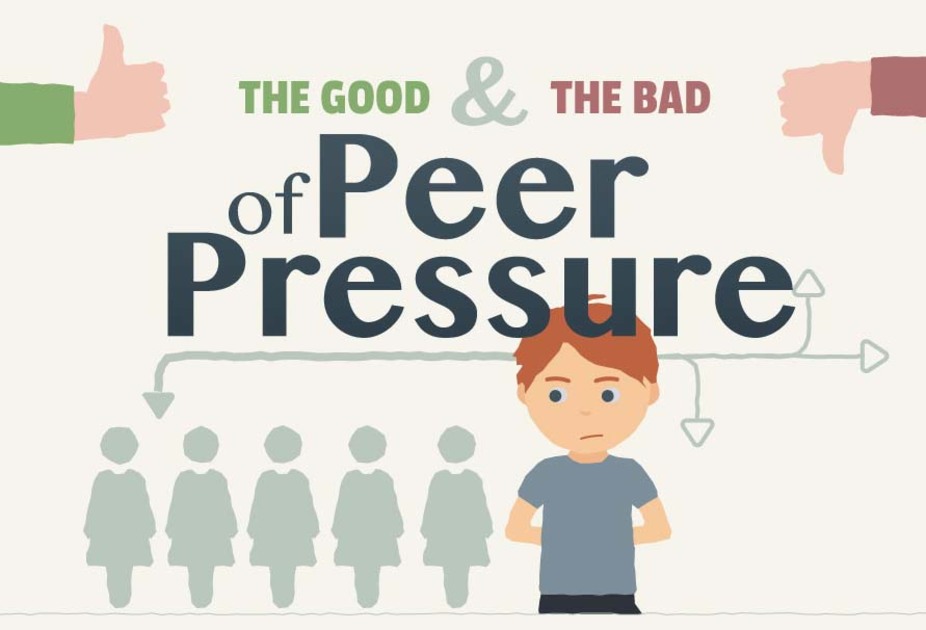
Question: Can you please give me some good guidelines on how to deal with peer pressure? I am very affected by what the people around me are doing. I don't know if it's that I'm afraid of people getting angry with me or I need to be the center of attention. I think that that is my most difficult challenge and if I could just not be afraid to be different I would be a much better person.
This is a good question. You are not alone in being affected by this nor is this a new problem. Long before psychology had anything to say on this topic, The Rambam in the beginning of the 6th Perek of Hilchos Deios lays downs some general guidelines regarding peer pressure. I will try to follow that format and embellish a bit.
It is normal for one to be influenced by their surroundings. One can be influenced to conform through either direct or indirect pressure, regardless of one’s age. We all have a strong motivation to belong to a larger group, but this comes with the price of conformity. This is true on some level for all groups including political groups, Shuls, Yeshivos, and friends. In all these situations, peer pressure can be a very powerful force. Even highly intelligent people are susceptible to cave to the pressure to conform as has been documented in many experiments (e.g., the The Asch Conformity Experiments).
Because of this reality, we should surround ourselves with those who will influence us positively. Not all conformity is damaging. For example, belonging to a broader group that encourages one to grow in Torah study, Tznius, to make technology restrictions, or to care for eldery parents are all example of positive peer pressure. Aside from utilizing general positive peer pressure, we can also use it for specific needs such as by belonging to groups that will help us overcome our unique challenges (e.g., losing weight, quitting smoking).
In addition, we should distance oneself from those who can negatively influence us. Peer pressure can lead us to engage in behaviors that are inconsistent with our values (e.g., drinking or smoking). Even more common, but perhaps equally damaging, is the pressure that we feel to fit in and keep up with the Jones’ and lead our lives in ways that are not authentic and carry negative ramifications.
The balance of life is to seek positive peer pressure while simultaneously training ourselves to combat and resist negative peer pressure. This is about staying true to our own convictions. The following are tips that may be helpful in this regard:
- Reflect on your core values and think about what you really want for yourself based on them. This process is enhanced by self-awareness, developed through study of Mussar and/or psychotherapy. One who is more attuned to these core values is in a better position to choose smartly when crucial decisions need to be made such as purchasing a new summer home or making a simcha. They will be able to ask themselves what feels right to them. Is this house the right thing for the family or is it about pressure to keep up with others? Is the new job one that will be fulfilling to them, or are they taking it because they feel their parents/friends/spouse would want them to?
- Ignore the critics. There will always be someone questioning your choices. What matter in the end is whether the choices you make are true to yourself and reflect your core values. Someone who criticizes you may be dealing with their own insecurities.
- Be assertive. When someone is pressuring you to do something unhealthy, make eye contact and just say no. Plan ahead of time for what exactly you will say and try finding a mentor, family member, or Rov who will support you in your decision.
- Seek people who will support your values. If certain relationships are unhealthy for you, let them go, at least somewhat. It is advisable to have a wide range of friends, especially those who will be a positive influence on you.
Originally appeared in Yated Neeman
 Previous
Previous

